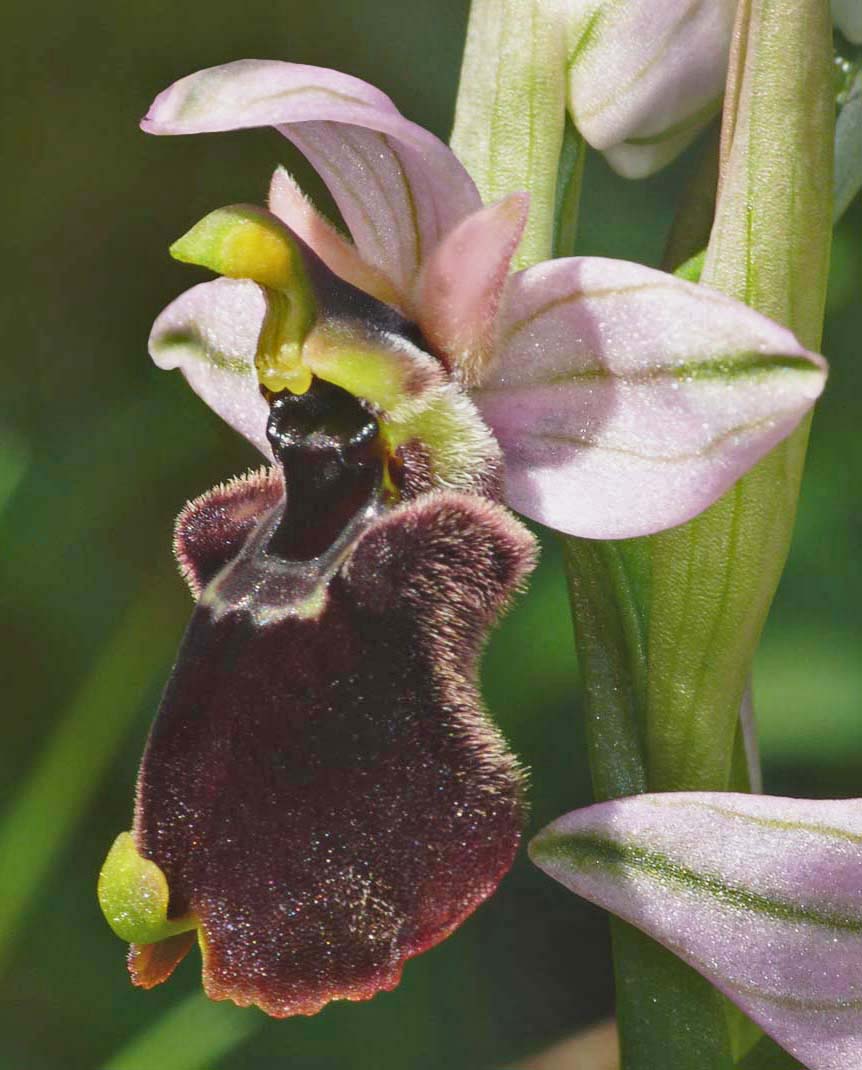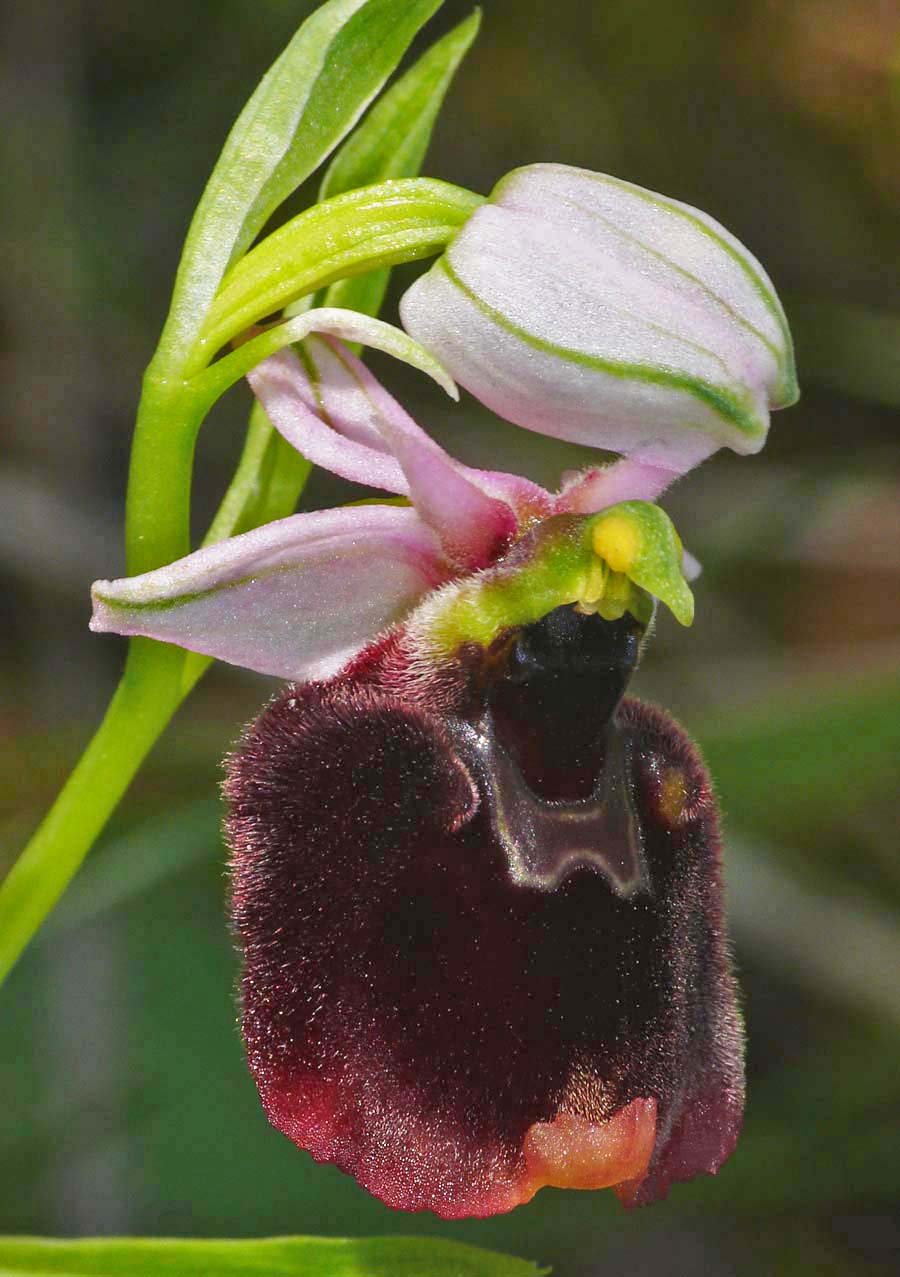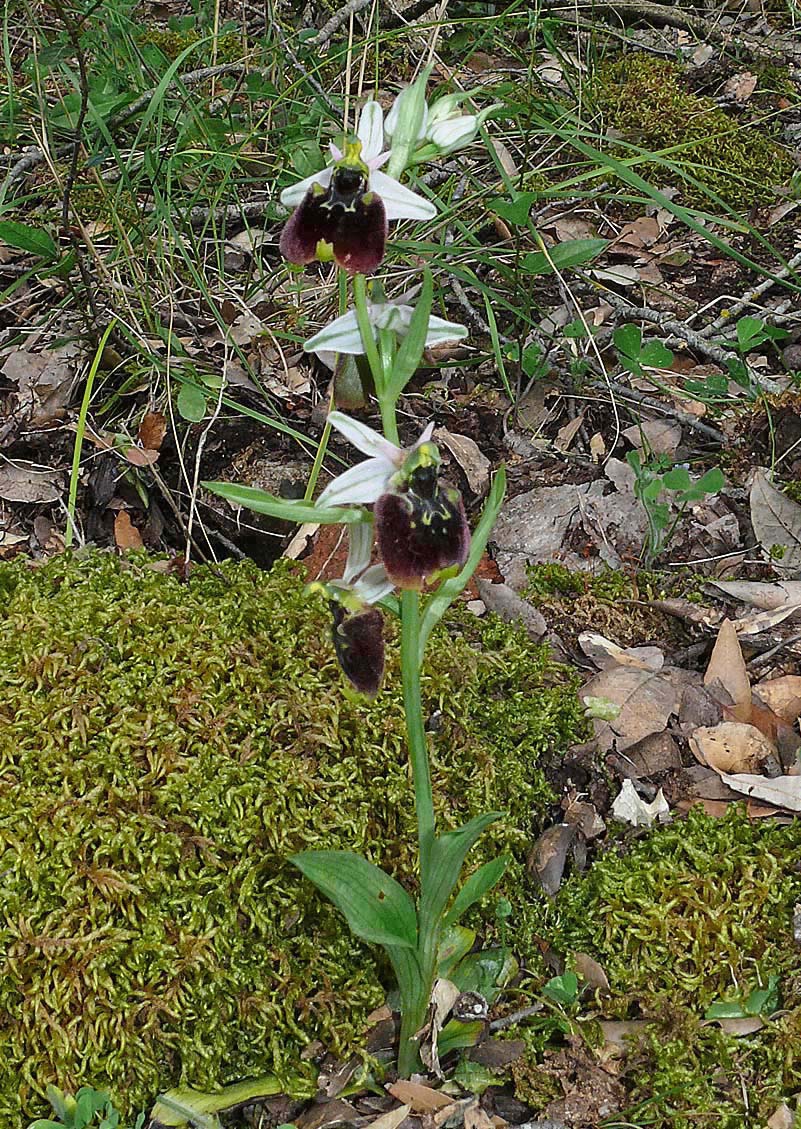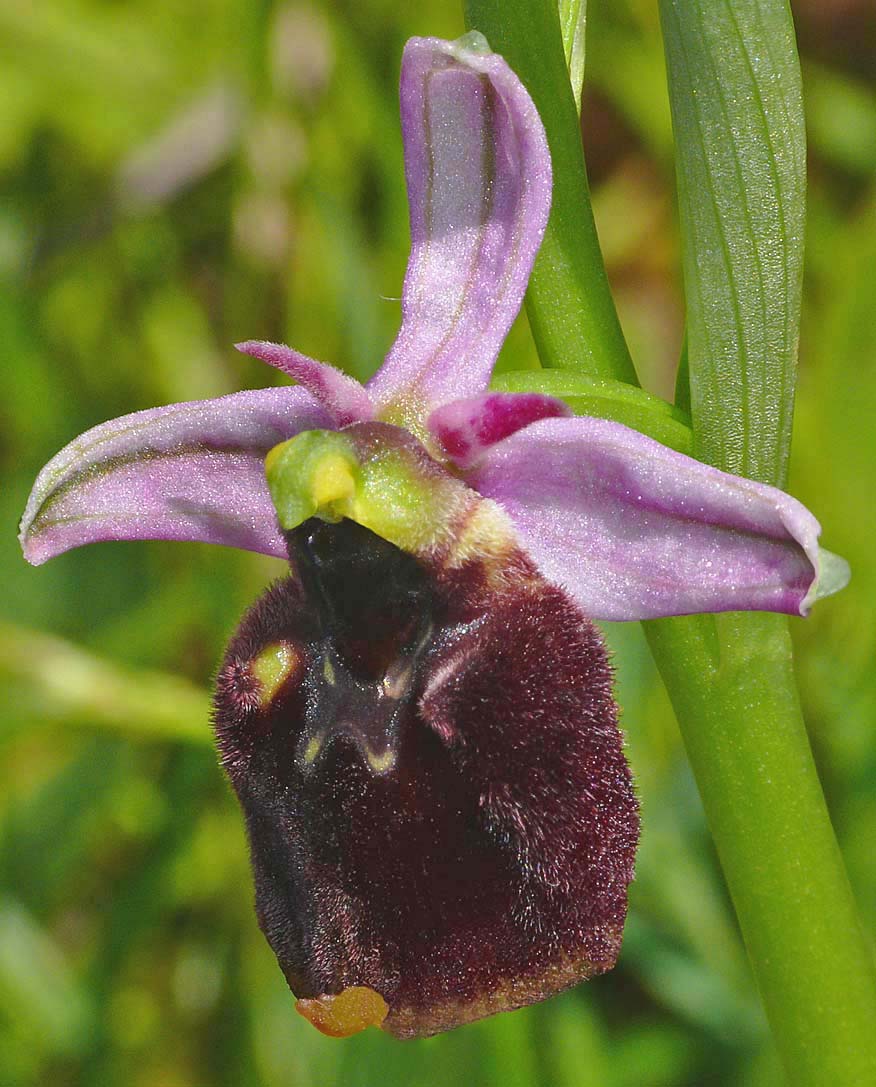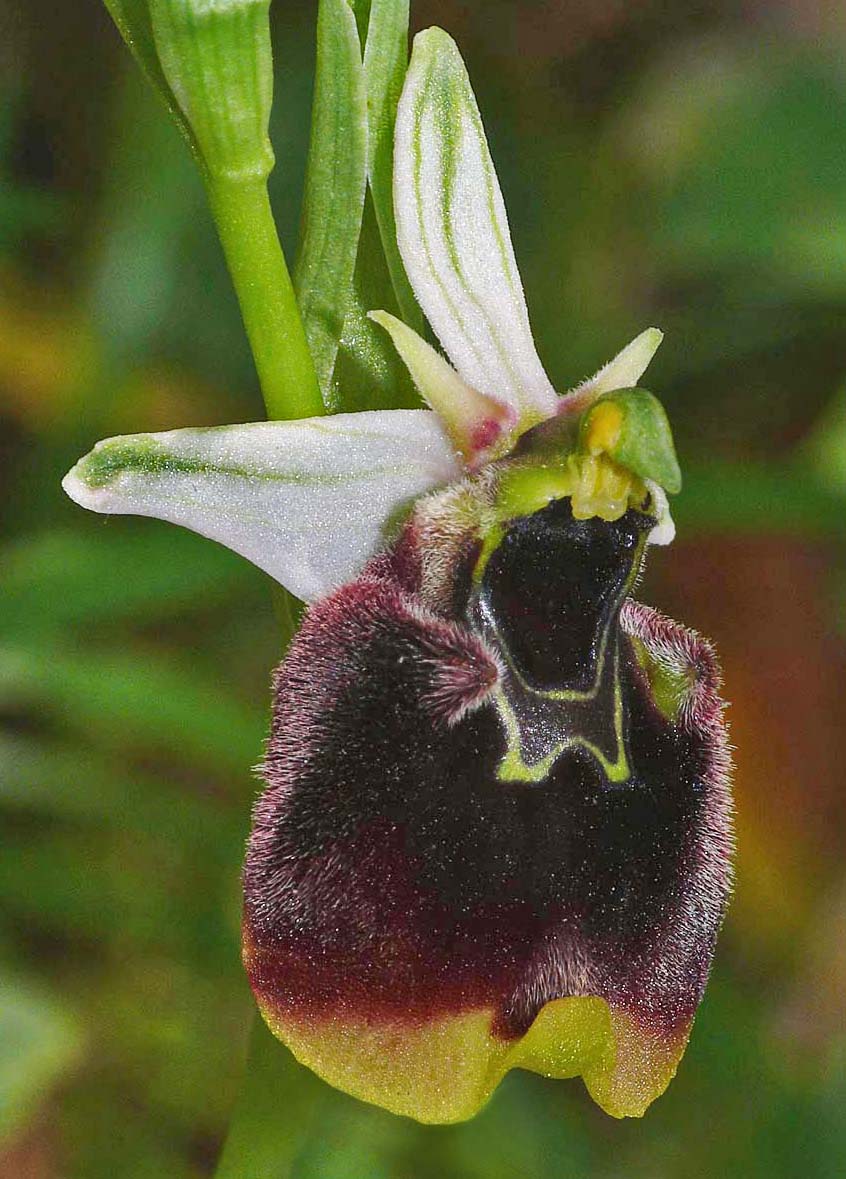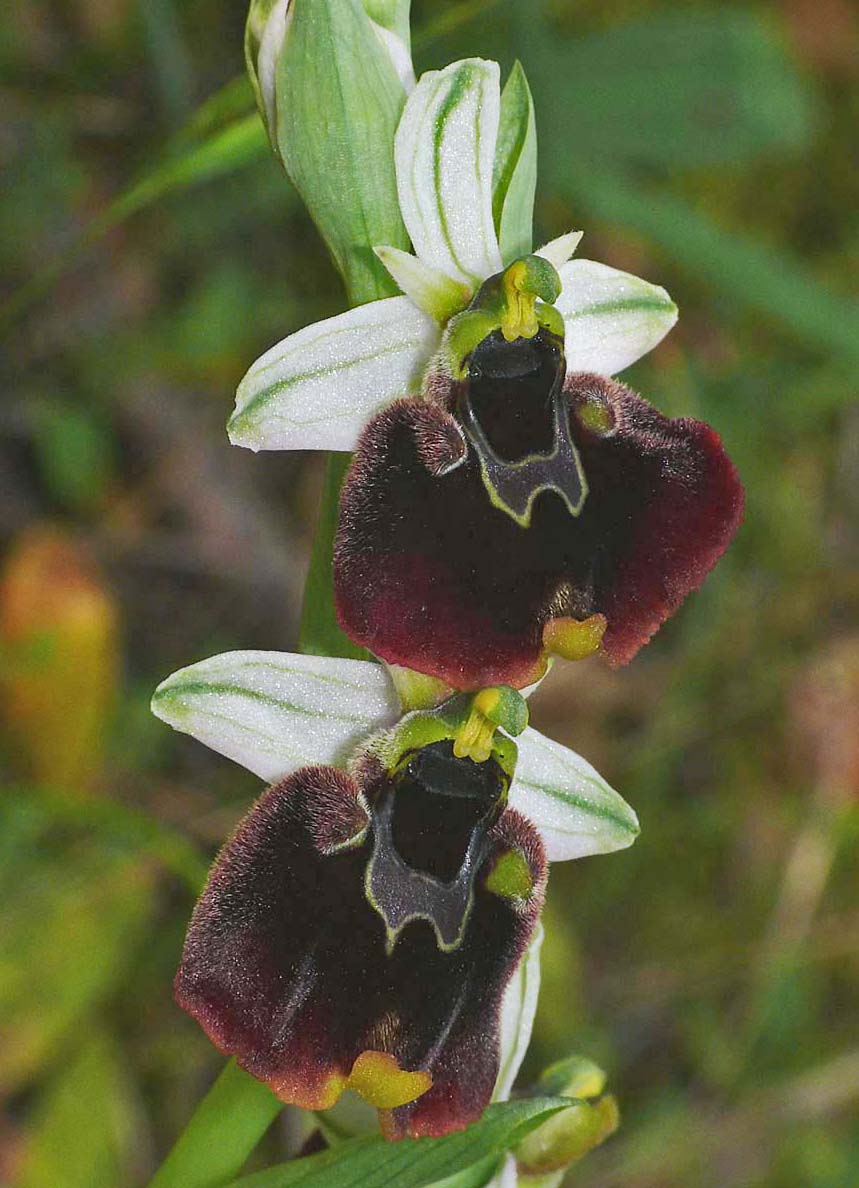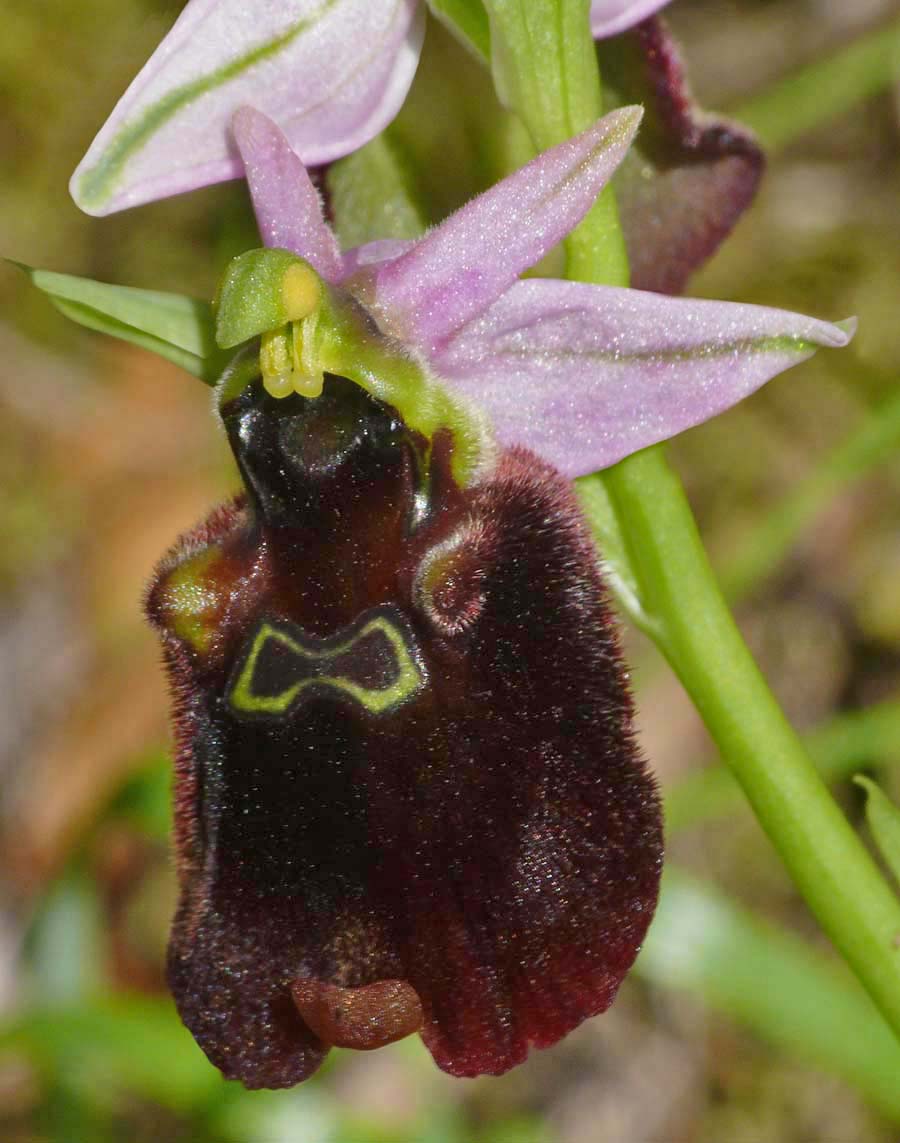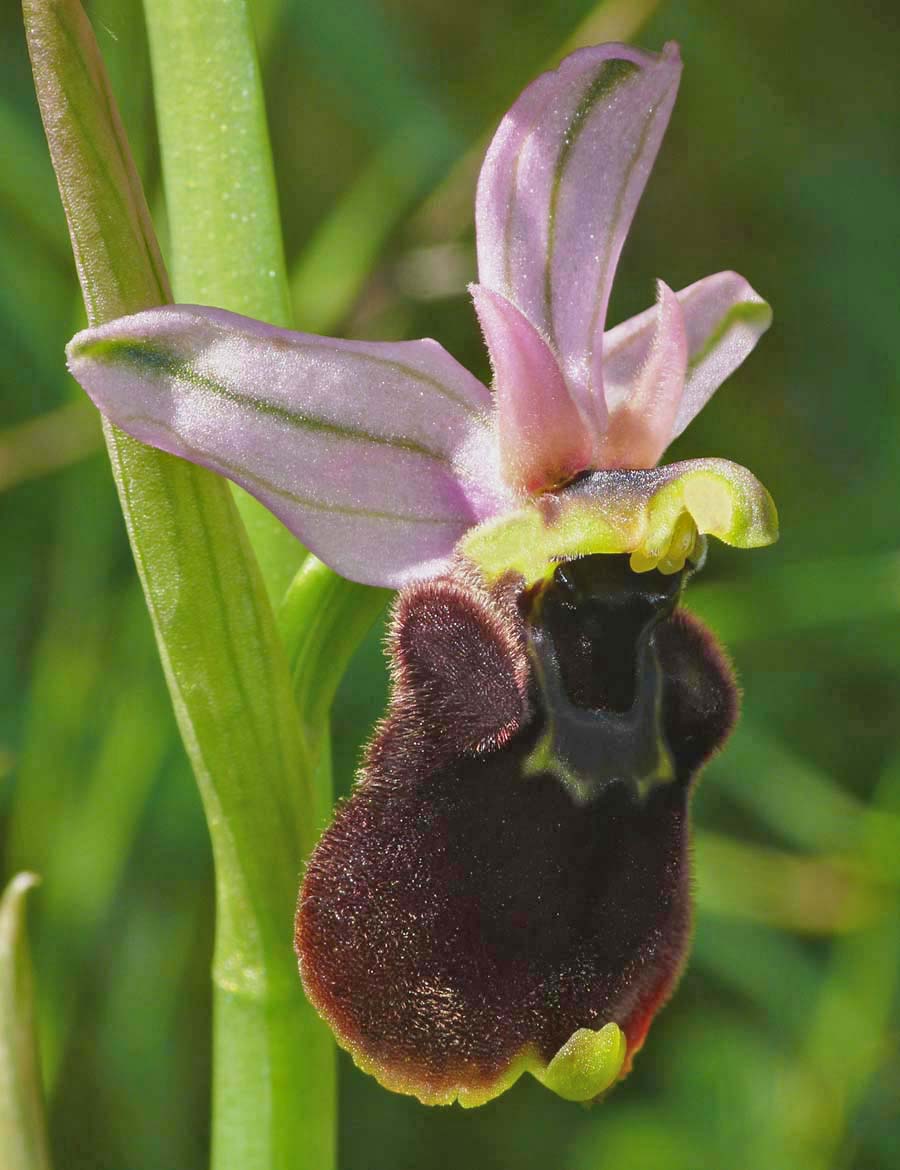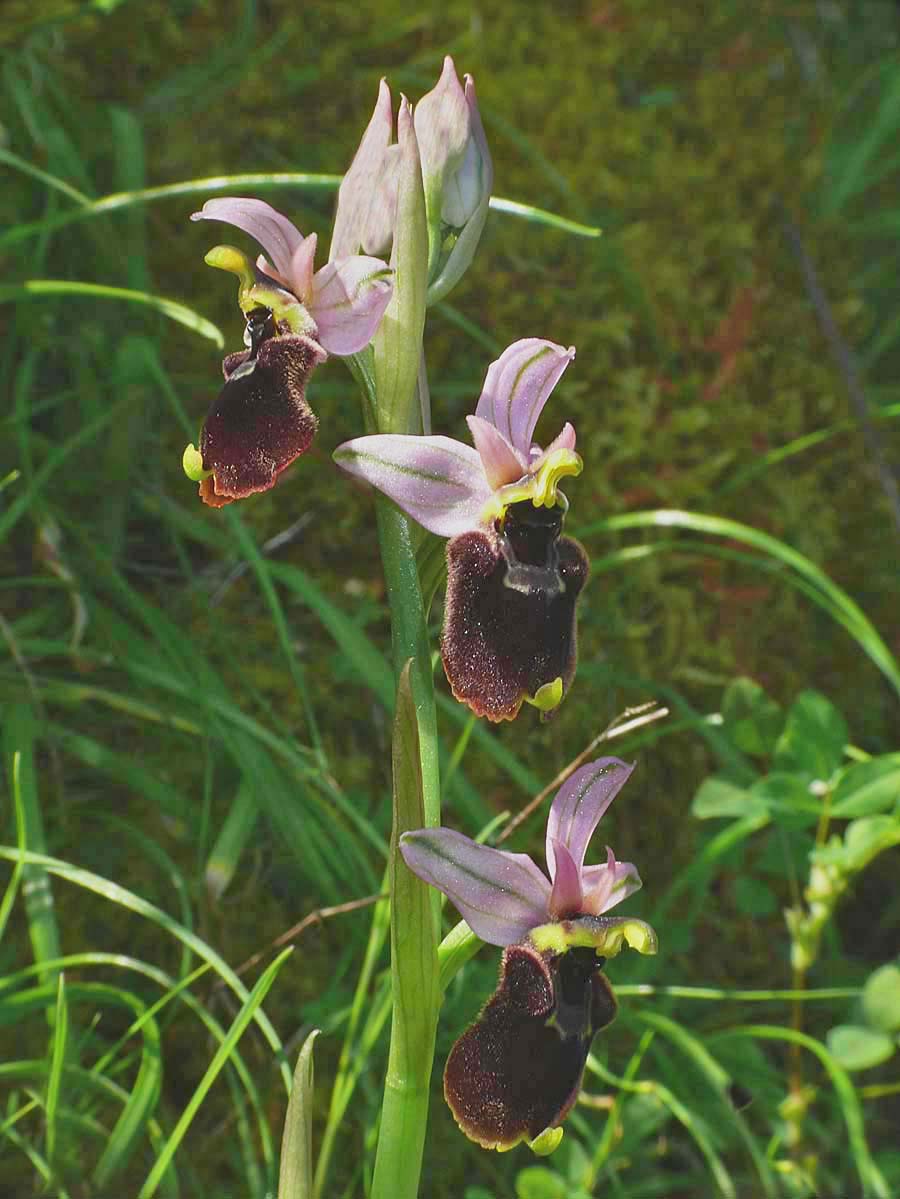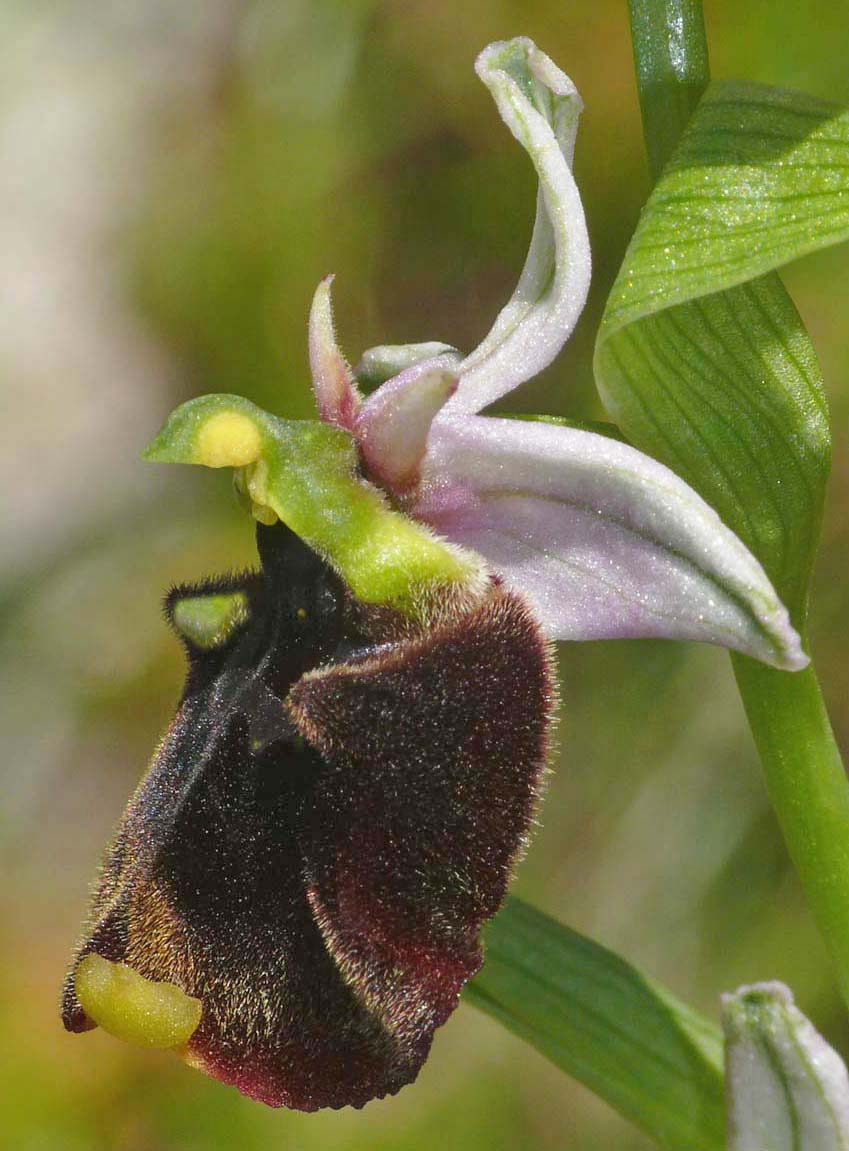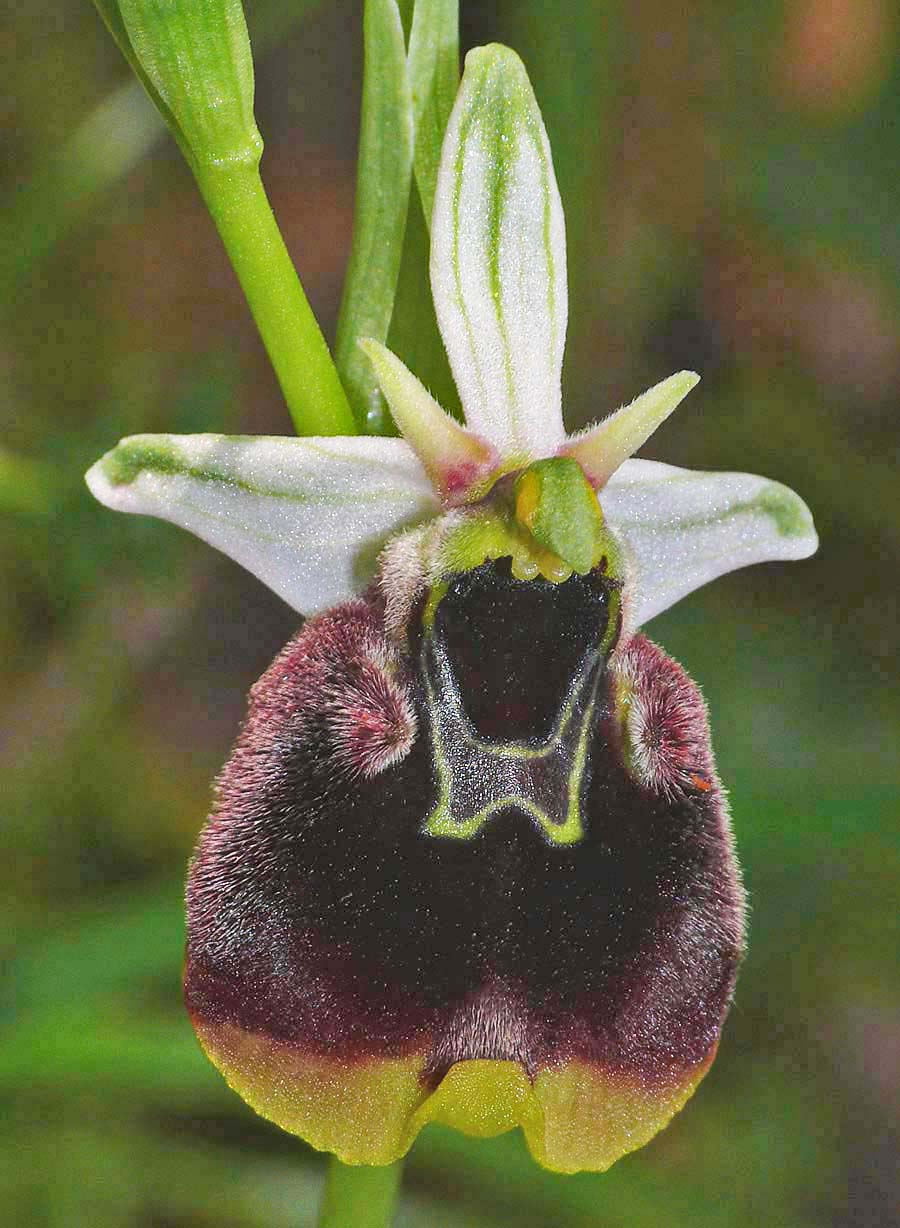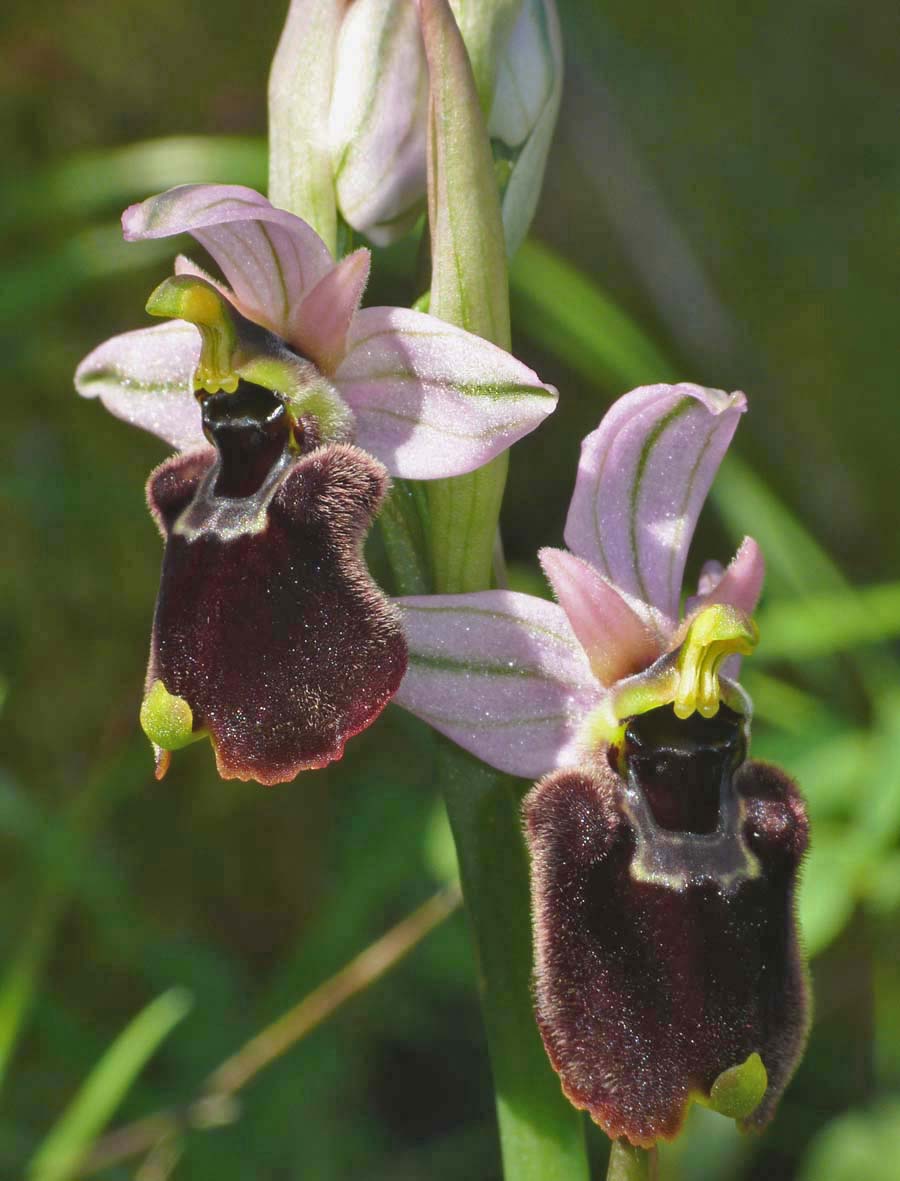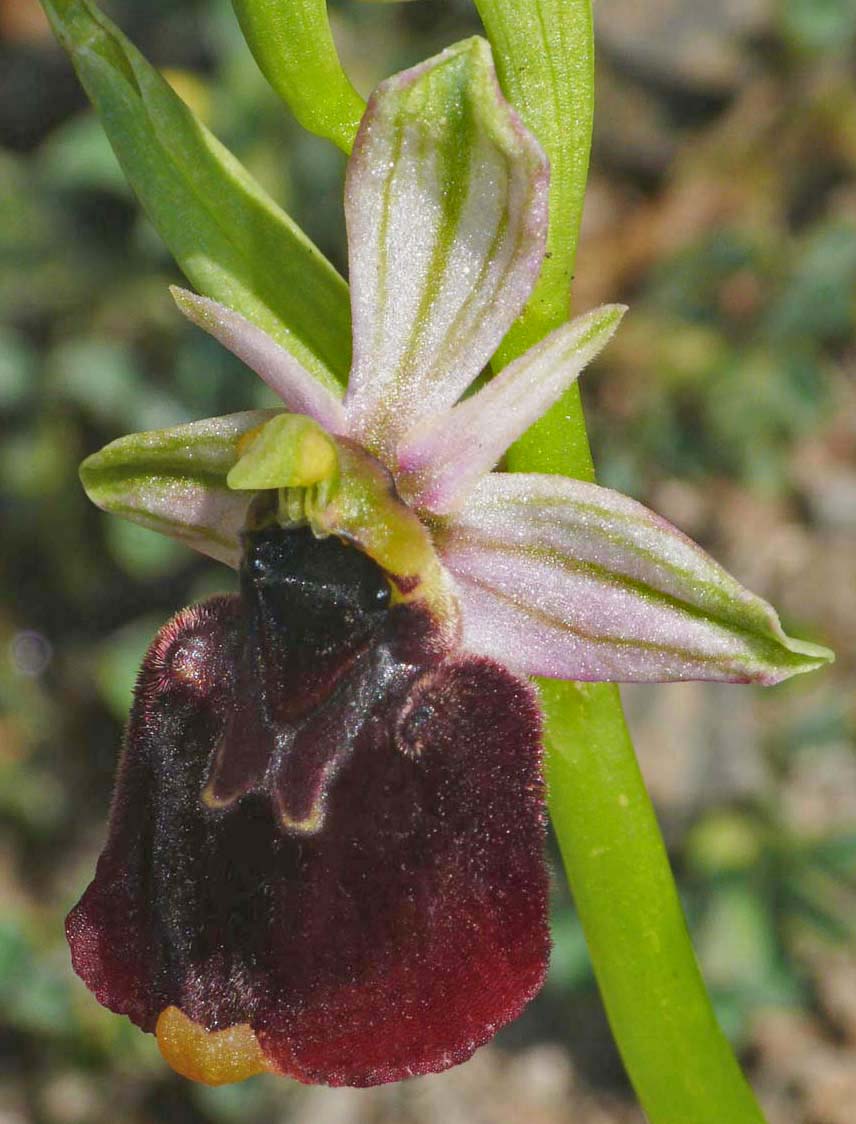O. chestermanii
was first described from Sardinia by Golz and Reinhard in 1982 and belongs to the large O. bornmuelleri group
of Ophrys. It is named after D. Chesterman, a contemporary British botanist.
This
species is endemic to Sardinia, and particularly to the mountains north
of Domusnovas, where it is both highly localized and extremely rare,
growing individually
or in small widely spread populations on alkaline soils invariably in
mid shade. Its
preferred habitat is a mossy bank amid damp evergreen oak forest and in
these conditions can sometimes form small colonies of mixed flower
forms, exhibiting various patterns and colouration. There are however
features that are reasonably stable, these include the black stigmatic
cavity, poorly developed basal swellings, dark labellum and the
reduced speculum
comprising little more than a steely blue bib beneath the blackish
basal field.
Another species closely associated with O. chestermanii is O. normanii, a taxon originally thought to be a stabilized hybrid that included O. chestermanii as an assumed progenitor. A thorough study in 2009 has now proved however that there has been no gene flow from this species and that O. normanii is a taxon in its own right. These two species are known to be sympatric, to share a common pollinator and to bloom at the same time, a situation that would normally lead to an assumption of regular hybridization and yet there has been no species subsumation, record of intermediate populations or proven hybridization. It would appear sympatry, a common pollinator and coincidental flowering periods have not led to gene ingression, thus indicating the presence in O. normanii of reproductive isolation mechanisms that prevent interspecific gene flow. O. normanii in its dark phase can appear remarkably similar to O. chestermanii , this almost certainly being an adaptation to the same pollinator.
Another species closely associated with O. chestermanii is O. normanii, a taxon originally thought to be a stabilized hybrid that included O. chestermanii as an assumed progenitor. A thorough study in 2009 has now proved however that there has been no gene flow from this species and that O. normanii is a taxon in its own right. These two species are known to be sympatric, to share a common pollinator and to bloom at the same time, a situation that would normally lead to an assumption of regular hybridization and yet there has been no species subsumation, record of intermediate populations or proven hybridization. It would appear sympatry, a common pollinator and coincidental flowering periods have not led to gene ingression, thus indicating the presence in O. normanii of reproductive isolation mechanisms that prevent interspecific gene flow. O. normanii in its dark phase can appear remarkably similar to O. chestermanii , this almost certainly being an adaptation to the same pollinator.
